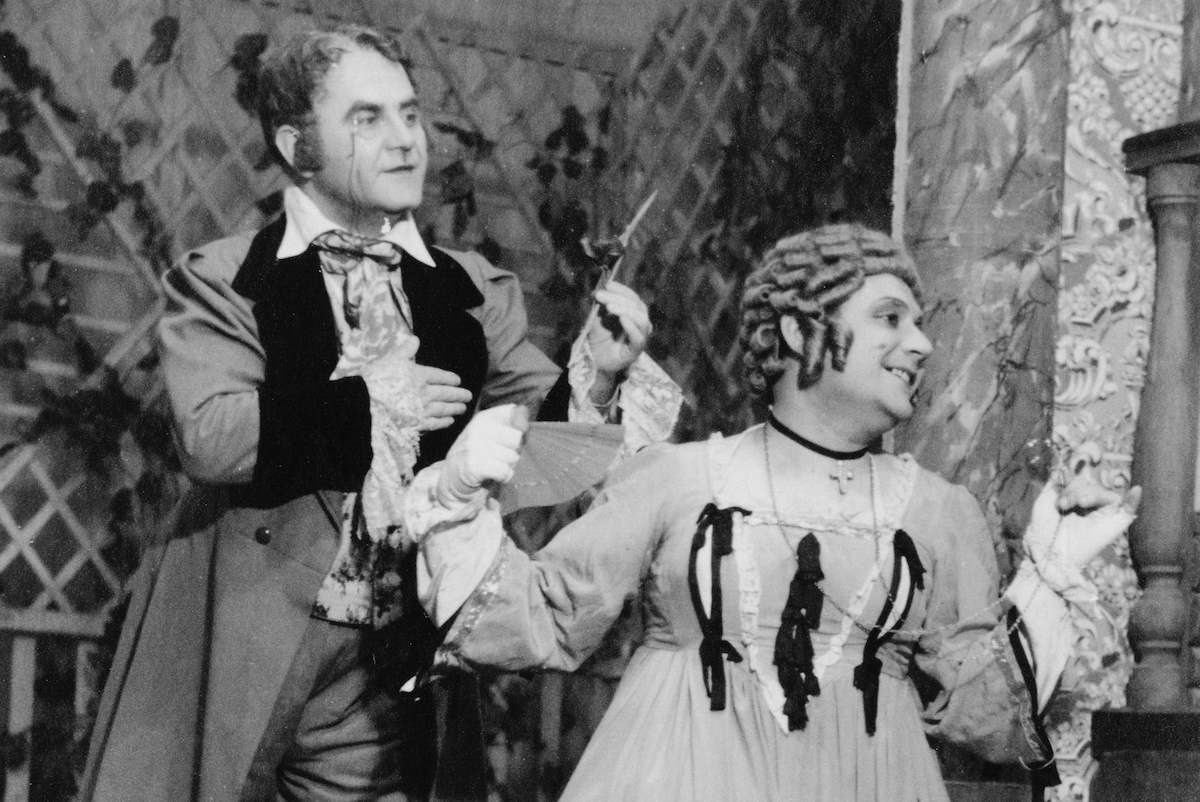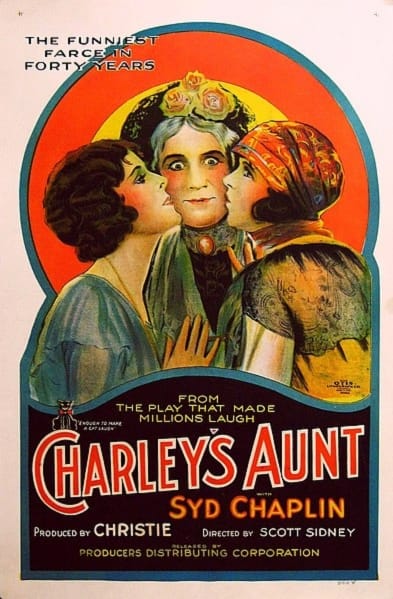Art
On Gender, Blurring the Line Between Dogma and Farce
Every man should be free to invite others to regard him as a woman without fear of inviting violence, discrimination or the loss of basic rights. That is what being protected from transphobia means.

Everyone has heard of Charlie Chaplin. Less widely recognized is the name of his older half-brother Sydney (often called Syd), who was a gifted comic actor in his own right.
Unlike his younger brother, who invented his own kind of comedy, Syd relied on the established comic tropes of the day, which often were nothing more than feature-length versions of boys-school dress-up sketches. This included the 1925 version of Charley’s Aunt, in which Syd starred as an Oxford student who pretends to be a wealthy middle-aged widow as part of a hoax aimed at helping his friends Jack and Charley propose to their paramours Amy and Kitty.

Predictably, this “aunt” attracts the romantic attentions of the villain, a penniless former grandee who seeks to plunder the aunt’s fortune. As this clip shows, the brilliance of Syd’s acting is expressed not by succeeding as a lady (as Nathan Lane did during portions of The Birdcage in 1996), but rather by failing in the nearly complete way that this kind of comic role requires: His feminine pretenses are sufficiently crude and farcical to amuse the audience, but nominally credible enough to support the conceit that they’d fool a greed-addled villain who wants to be fooled.





